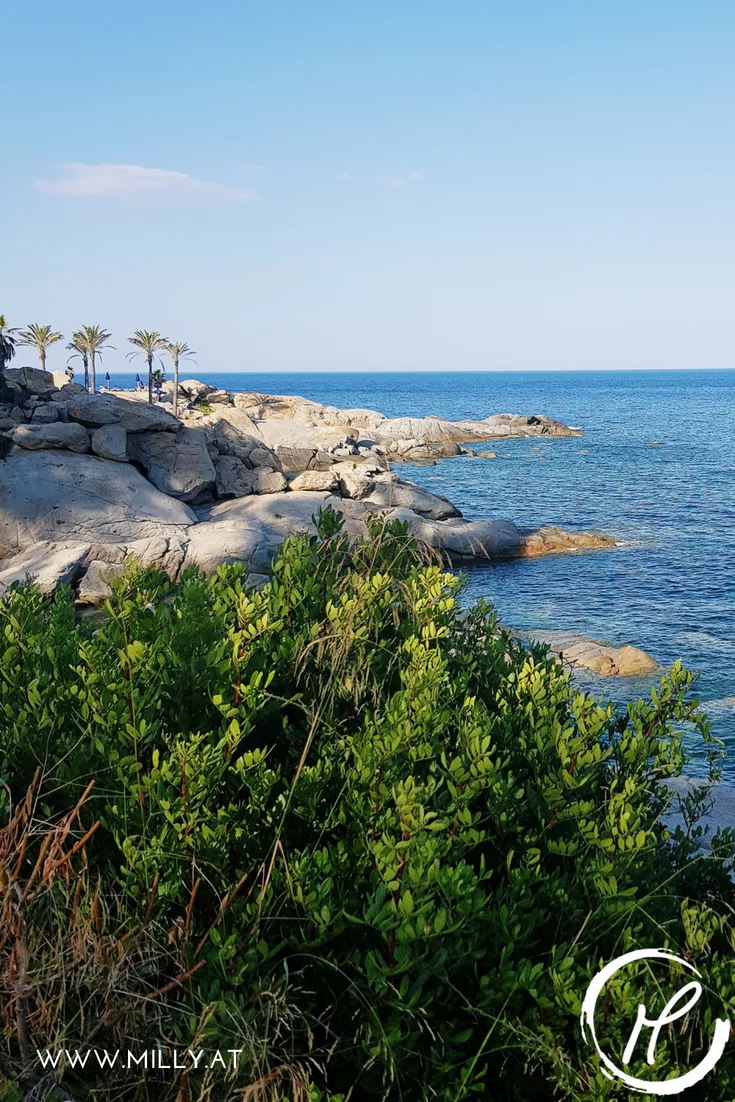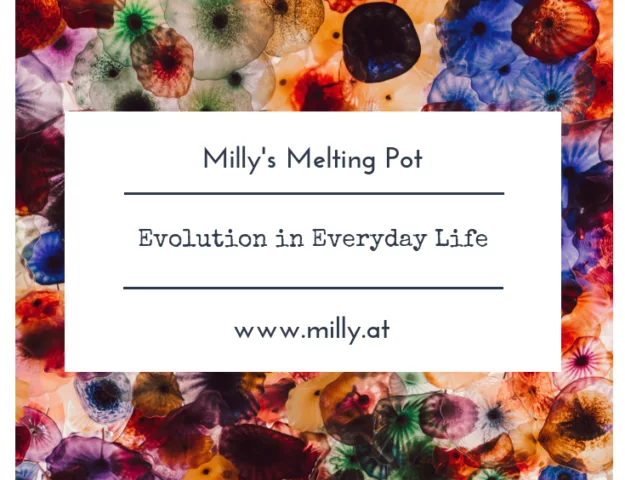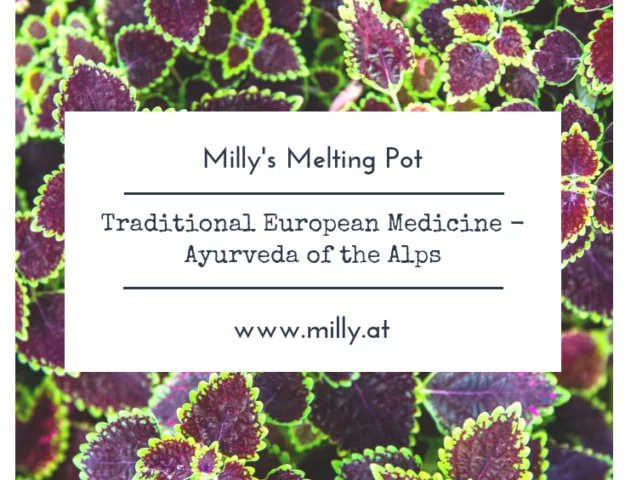The secrets of the Mediterranean cuisine

Published in the luxembourgish magazine Revue (Nr 32/2018)
The Mediterranean diet is known as one of the most healthy diets there is. But what is it’s secret? The new mantra is not to live a longer life, but to live a longer and healthier life. We live in a new era, where conscious and healthy living is part of our everyday culture. And in that spirit we sought to find out what makes the Mediterranean diet so special!
Everyone knows the feeling: your last vacation is still on your mind and you can remember the easy-going evenings with silky red wine and good food. Everyone who has been on vacation at the Mediterranean sea will not so soon forget the scenery, the people and especially the food. But it is not just the sea that makes us feel all warm and fuzzy; it’s the culture and the lifestyle of the people that welcome us there.
You can’t easily define the Mediterranean cuisine – is it the Italian cuisine or rather the Spanish, Greek or north African cuisine? Short answer: all of the above! The Mediterranean cuisine is as versatile as the countries of the region. They all have their own ingredients, rituals, knowledge and traditions that make their food unique. It is for that reason that the UNESCO classified the “Mediterranean lifestyle” as an “intangible” heritage.
These country-specific differences are responsible for the diversity of these individual cuisines. But they also have some elements in common. That is why from a scientific point of vue the Mediterranean cuisine is described as follows: first and foremost the main source of fat is olive oil, as opposed to animal fats. Red wine is consumed in moderation and this diet contains a lot of fresh fruits, vegetables, nuts, legumes, cereals and only a moderate amount of red meat and milk products. But how does this diet help us lead healthier lives?

Already in the middle of the 20th century, scientists observed that the incidence of cardiovascular disease in Mediterranean regions is much lower than with populations of northern Europe for example. Scientific studies have since shown that adhering to a Mediterranean diet lowers the risk of developing cardiovascular disease.
To fully understand the positive aspects of a Mediterranean diet on our health, we need to take a little excursion into the biochemistry of our body and our health. According to the WHO, cardiovascular disease is the most common cause of death of our time (nearly 31% of all deaths are caused by these conditions). Heart attacks as well as strokes represent about 80% of cardio-vascular disease. Occurrence in western countries is especially high, where these diseases kill far more often than cancer, diabetes, dementia or infection.
There can be many causes that lead to the development of cardiovascular disease – the most common reasons however being an unhealthy diet, smoking, overweight, physical inactivity, stress and abnormally high levels of alcohol consumption. These behaviors are often consequences of our lifestyle choices and our habits in our society. As a consequence our innate mechanisms that regulate our body functions become unbalanced.

Coronary heart disease as well as strokes are often caused by atherosclerosis, an disease of the arterial wall. Atherosclerosis is partly caused by fat depots within the arterial wall, which can lead to a narrowing as well as a stiffening of the artery. These arterial fat deposits are caused when the transport of fat within the blood is disrupted. This process involves our immune system which leads to inflammation. If the artery becomes too narrow, or if a plaque is released from the fat depot, then blood flow to the tissue can be severely restricted or stopped, the tissues’s supply in oxygen is stopped and the tissue starts dying. In the heart this phenomenon is called a myocardial infarction or heart attack, in the brain it is termed a stroke.
Our body uses little vesicles – like submarines – to transport different types of fats or lipids throughout the body. LDL (low density lipoprotein) is used to transport lipids through the body whereas the role of HDL (high density lipoprotein) id to transport lipids toward the liver, where they are catabolized or excreted. Both are necessary for a healthy metabolism – our body never does anything without a reason. More about the role of fats in your body here!
Certain lifestyle choices, such as smoking or excessive alcohol consumption, can lead to damage in the LDL particle within our blood. Damaged LDL particles can be the starting point for atherosclerosis and later cardio-vascular disease. That’s why LDL is known as “bad” cholesterol and HDL as “good” cholesterol.

Our body is a complex system and the development of disease can rarely be pinpointed to one reason alone. However, the fact that a Mediterranean diet can significantly reduce your risk of developing cardio-vascular disease can be partially explained by the high levels of unsaturated fatty acids in this diet. The presence of anti-inflammatory, anti-oxidative and anti-thrombotic micro-components of this diet may also play a pivotal role.
It has been shown that unsaturated fatty acids within our diet reduce LDL levels in our blood. These healthy fatty acids can be found in foods such as fatty fish like salmon or makrel, olives and olive oil, nuts and avocados. On the other hand, it was shown that a high consumption of saturated fatty acids leads to higher LDL levels in the blood, as more LDL are produced and less are broken down. Higher LDL levels within our blood mean that the risk of such particles being damaged and inducing atherosclerosis is also higher. Our immune system is activated which can lead to fatty depots within the arteries. The worst fatty acids of all are called the trans fatty acids, as they additionally lead to a reduction of HDL levels, further influencing the LDL/HDL ratio. Trans fatty acids are mainly found in fried foods and synthetically hydrogenated fats like margarine. However, trans fatty acids are also unsaturated fatty acids, so take care to not fall for the use of “fashionable” scientific words. The difference between saturated fatty acids, unsaturated and trans fatty acids lies within their physical structure. For a detailed explanation, have a look at this article about the fats in your body.

The knowledge about our own biochemistry is developing very rapidly. In the 80s, fat in general was considered harmful and a low-fat diet was recommended. Later, scientists discovered the different impacts of different fats on our health – even today, a diet rich in unsaturated fatty acids was recommended.
Saturated fatty acids are harmless in a moderate amount, we need them and if they are not supplied within the diet, we produce them ourselves. Only an unhealthy amount of saturated fatty acids in our diet has negative consequences. However, the belief that saturated fatty acids are linked to an increased risk of cardiovascular disease is being questioned lately. It has been shown recently that not all types of fatty acids affect our blood lipids. Their size as well as their provenance seem to play a role too!
The positive effects of a Mediterranean diet cannot only be explained by the vascular protective effects of unsaturated fatty acids. Olive oil, red wine and fresh fruit and vegetables also contain a lot of other healthy components such as polyphenols. These molecules have an anti-inflammatory as well as an anti-oxidative effects which can directly act against atherosclerosis. A little bit of everything..
The effects of a Mediterranean diet on our health cannot be solely explained by biochemical means. Our mental state and health also play a crucial role. Apart from a bad diet, physical inactivity and other unhealthy habits, stress can also play a critical role in the development of cardiovascular disease. It is being discussed if stress may not be as strong a risk factor as smoking or high blood pressure. However, if stress directly or indirectly affects the pathogenesis of cardiovascular disease is still unclear. Stress can lead to high blood pressure and the increased release of stress hormones such as adrenalin or cortisol. People who are stressed also tend to overeat, exercise less and may have an increased tendency to smoke.

According to the UNESCO, the Mediterranean diet and lifestyle also has a very important social component. Preparing and sharing a meal together is a central part of every family’s life. Us humans are not solitary creatures and we get a lot of energy from social interactions. In that spirit scientists have shown lately that one of the most important factors for good health in old age is the social component. High quality social relationships can keep you healthier for a longer time. Social isolation not just only affects our mood and mental status, but also has a deep impact on our biochemistry. People who feel socially isolated are stressed and show high levels of stress hormones as well as systemic inflammation – all risk factors for cardiovascular disease.
Another quite astonishing factor, that seems to influence the development of cardiovascular disease is the speed with which we eat. People who eat slowly don’t suffer from cardiovascular disease as much as people who eat quickly. This can be due to the quality of the food – people who eat quickly and are stressed may not pay attention to the quality of the food as much. Another explanation may be the speed at which your body will send you a signal that you are full. Usually the body will send you a signal after about 20 minutes that you are full. Quick eater will manage a lot more food in that time frame as slow eaters and they may have a tendency to be overweight. Also, people who eat quickly may trigger a stress response in their body – the body thinks it needs reserves and it will preferentially transform food into fat, which can lead to overweight.

Within the Mediterranean lifestyle, people consciously take time to have a meal and this meal is shared within their social circle – family and friends meet up for a meal and share their events of the day, good or bad and they treat themselves to some lovely food. Food is not just a means to an end, but a central event of the day. You can let the world turn for a little while without worrying and while enjoying a “soul warming” meal. You can feel quiet and safe. And that is what I think is the secret of the Mediterranean diet: food is not just for survival, but it warms your heart, makes you feel good in good company and gives you strength – all things that we so often miss these days.
(Bibliography upon request)
I know not everybody has time to pop by the blog every day! But if you want to read the new recipes and articles then just follow Milly’s Melting Pot on Facebook, Instagram or Pinterest! Or register for the newsletter and get everything sent right to your inbox!
And if you are interested in how fats work in your body then check out this article in my blog section “The bubbly biochemist” !




